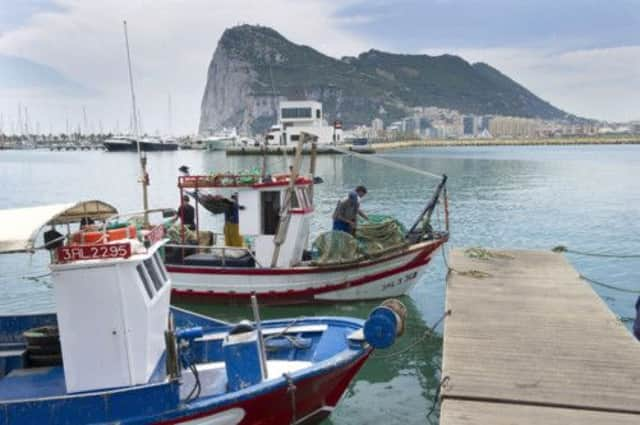Gibraltar: Spain ‘will ease border controls’


The Prime Minister insisted that the UK’s position on the Rock’s sovereignty would not change as the pair discussed ways to ease the current tensions over the territory.
A No 10 source said the Prime Minister told Mr Rajoy he did not want the row to “damage our bilateral relationship” and Foreign Secretary William Hague will lead further talks aimed at calming the situation.
Advertisement
Hide AdAdvertisement
Hide AdMr Cameron wrote on Twitter: “Constructive call with Spain’s PM Rajoy. I made clear my concerns re Gibraltar and that our position on sovereignty won’t change.”
The Prime Minister’s intervention yesterday followed a formal protest by Britain’s ambassador to Spain over “disproportionate” checks at the border.
In his meeting with Spanish foreign secretary Gonzalo de Benito, ambassador Giles Paxman also sought an official explanation for Spanish threats to levy a charge on vehicles crossing the border and to close airspace.
A Foreign Office spokesman said: “Giles Paxman visited the Spanish secretary of state, Gonzalo de Benito, to formally protest at the disproportionate border checks at the weekend and to seek an explanation of foreign minister [Jose] Garcia-Margallo’s comments that he intends to target Gibraltar with future punitive measures.
“The ambassador reiterated that the UK would stand shoulder to shoulder with Gibraltar in face of threats from Spain.”
Spain was accused by Gibraltar’s chief minister of “sabre-rattling” after Mr Garcia-Margallo announced his proposals.
Mr Garcia-Margallo said the proceeds of a border fee could be used to help Spanish fishermen who have lost out because of damage to fishing grounds allegedly caused by Gibraltarian authorities, following the creation of an artificial reef.
Gibraltar’s chief minister, Fabian Picardo, likened the behaviour to that during the Franco era or the regime in North Korea.
Advertisement
Hide AdAdvertisement
Hide AdA No 10 spokeswoman said: “The Prime Minister called the Spanish prime minister, Mariano Rajoy, this morning to raise serious concerns about actions by the Spanish at the border with Gibraltar and suggestions from Spanish Foreign Minister Jose Garcia-Margallo that they may introduce further measures.
The spokeswoman said Mr Rajoy agreed he did not want the issue to become an “obstacle” in relations with Spain and it was crucial that both sides found a way to “de-escalate” the issue.
She added: Prime Minister Rajoy committed to reducing measures at the border. Both leaders agreed there should be a solution to the fishing dispute.”
A Spanish government statement on the phone call made no mention of any concession over the border controls and stressed that the artificial reef was “unacceptable”.
The statement added: “The head of the Spanish government reiterated his will to find, as soon as is possible, a solution to the current situation created by the Gibraltar authorities, which has produced a deep unease and a great concern because it hurts the environment and fishing activity.”
Rock is one of last remaining parts of empire
Gibraltar is an outpost of Britishness at the mouth of the Mediterranean, and has been for 300 years. The 2.3 sq mile land mass, dominated by the 1,300ft limestone Rock of Gibraltar, is one of the last remaining parts of the empire.
The 30,000 inhabitants of the territory cling to their UK roots. Sterling currency, red post boxes, familiar British shops and banks, and the use of the English language are all legacies of the Rock’s long association with Britain. It is also represented by British MEPs in European elections, being counted as part of the south-west England constituency.
Captured from the Moors by the Spanish in 1462, Gibraltar was captured in turn by the Royal Navy in 1704.
Advertisement
Hide AdAdvertisement
Hide AdBut successive Spanish governments have argued that Spain’s territorial integrity justifies the return of Gibraltar to Spanish control.
Critics of Spain’s attitude towards Gibraltar have pointed out that it has its own city enclaves, Ceuta and Melilla, on the north African coast, bordering Morocco. Despite repeated demands by Morocco that the cities should be returned to its territory, Spain refuses to do so.